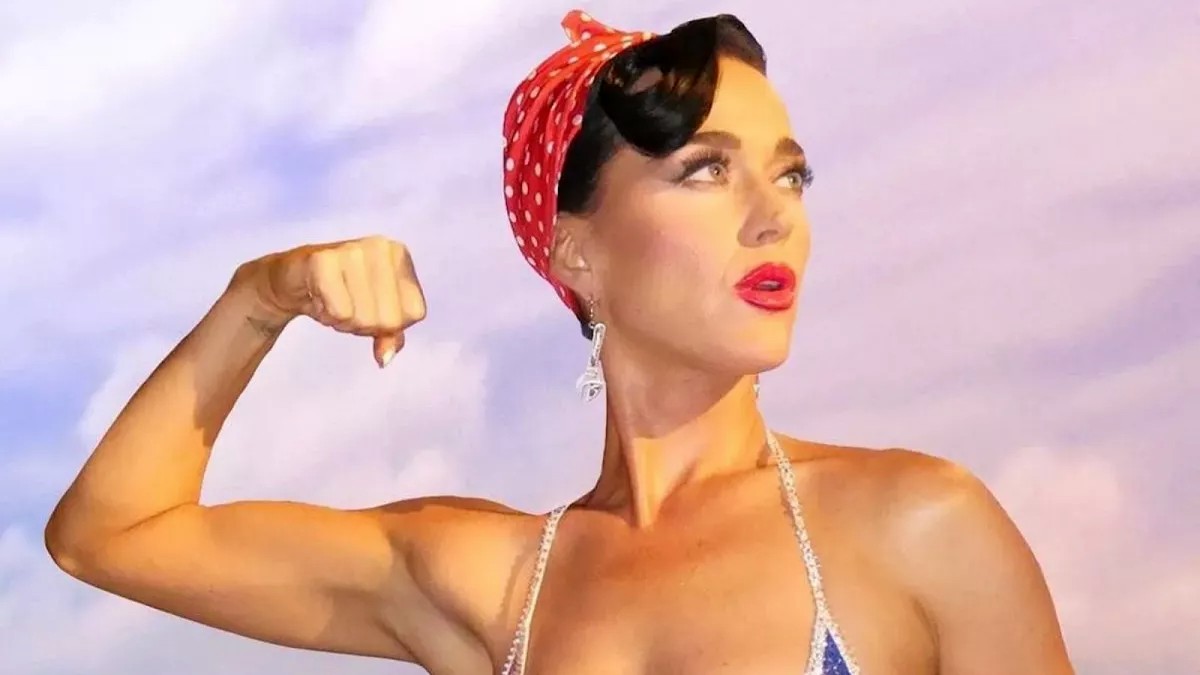Satirical or Not, Katy Perry’s ‘Woman’s World’ Misses the Mark

Katy Perry is known for her take on empowering tracks like “Roar” and “Firework,” but her latest female anthem, “Woman’s World,” badly missed the mark due largely to a confusing music video and the involvement of a controversial record producer.
It has been four years since Perry released her last studio album, but she is set to break that hiatus in September with the release of 143. Fans were excited for “Woman’s World,” the lead single of 143, especially since it was supposed to embrace the inspirational nature of some of the best songs of her career. However, it has been clear from the onset that the song isn’t anything like her powerful “Roar” and “Firework.” After all, it’s hard to classify a song as embracing feminism when it was created in collaboration with Dr. Luke, the music producer who Kesha accused of sexual assault and abuse. While Dr. Luke has denied the allegations and settled the lawsuit with Kesha, partnering with him for a female empowerment song is certainly a choice on Perry’s part.
As for the lyrics and quality of the song itself, it’s not terrible. However, aside from the chorus, which repeats, “It’s a woman’s world, and you’re lucky to be livin’ in it,” there’s not much to the song at all. A few stanzas generically describe women as “intelligent,” “confident,” and “winners” but fail to say anything profound or truly inspiring about women. As a result, Perry’s song was already being criticized as a fairly passionless and potentially even hypocritical endeavor when the music video came along.
Katy Perry’s “satirical’ music video confuses viewers
On July 11, Perry dropped the official music video for “Woman’s World,” but it did little to save the song’s reputation. Instead, it drew heavy criticism for its confusing nature. The music video begins with Perry and her backup singers working at a construction site and wearing heavily modified construction uniforms. Perry sits in the middle of the dancers, dressed as “Rosie the Riveter” and striking the figure’s iconic pose. Eventually, she swaps her outfit for a patriotic-themed bikini top, with the camera zooming in to capture a close-up shot of her chest.
The scene soon changes to Perry walking around with bionic legs in a new, chaotic world where Trisha Payatas pulls a monster truck behind her with a rope, and Perry refuels her legs by sticking a gas nozzle into her hip. The video ends with her hanging onto the outside of a flying helicopter while waving around the female gender symbol.
Needless to say, viewers were deeply confused by the music video, as it was seen as her cosplaying as a construction worker and tailoring the video to male audiences. In the comments, users described it as what a female empowerment music video designed by men would look like, while another commented it looked like something Vought International would produce to prove it supports feminism in The Boys. According to Perry, this actually was the goal of the video.
After receiving backlash, Perry took to Instagram to explain that the video was supposed to be satire. In the video, she explains that she and her fellow dancers are being “sarcastic” and depicting feminism from the “male gaze.”
Her explanation did little to remedy the situation, as many commenters pointed out that if you have to explain how your work is satirical, that might be a sign you did it wrong. What’s interesting, though, is that she clarifies that only the first half of the video with the construction outfits is satirical. The second half with the bionic legs is genuinely supposed to be the whole new “woman’s world,” her song describes and reflects the “feminine divine.” However, the tone of the second half is hardly different from the first half, and one could argue that it’s still looking at feminism with the male gaze in mind.
Arguably, the worst aspect of the music video is that it’s offensive to female blue-collar workers. It’s unclear why a celebrity who is so far removed from those workers decided to dress as a construction worker in the video and only featured these women from a male perspective. Many of these workers offered their thoughts, with one user commenting, “I am a blue-collar woman, and this is embarrassing. This is a slap in the face to women. This is how men view us, and you’re just fueling this. You are not helping women just stop.”
Another X user questioned why Perry is “satirizing” the blue-collar worker women instead of critiquing the men who made the industry hostile to women in the first place.
Ultimately, Perry’s song and music video missed the mark badly. The part that feels like it should be satire (collaborating on a female empowerment song with an alleged abuser) is real, while the parts that are supposed to be satirical don’t make it clear what exactly they’re trying to critique.
Have a tip we should know? [email protected]